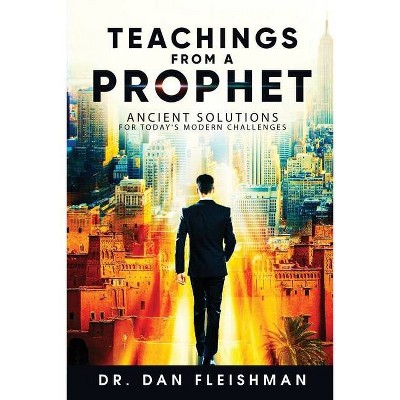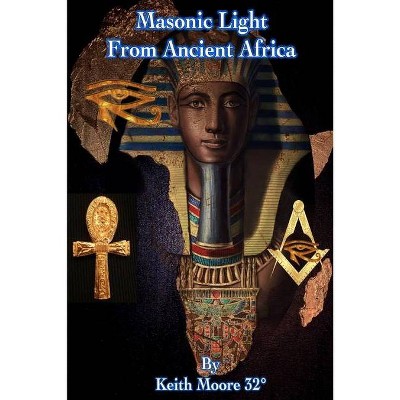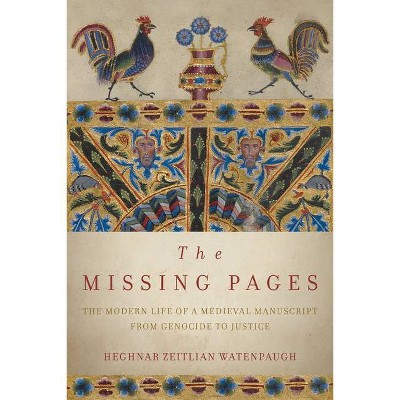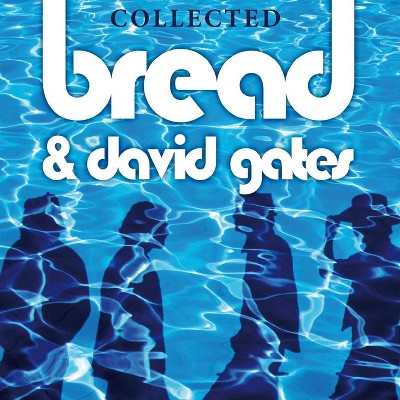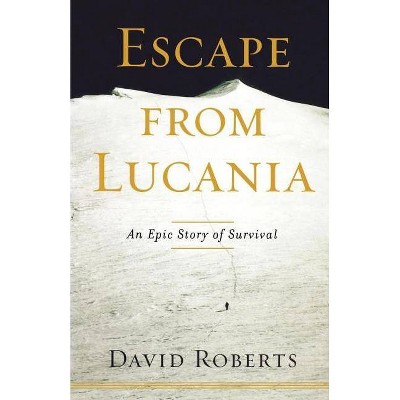Bread from Stones - by Keith David Watenpaugh (Paperback)
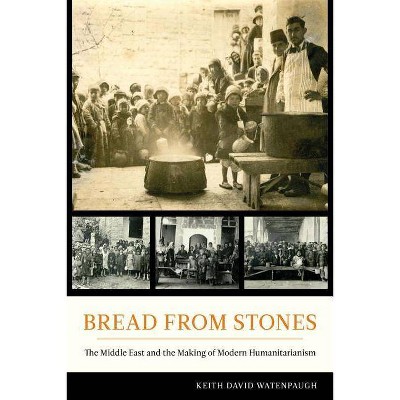
Similar Products
Products of same category from the store
AllProduct info
<p/><br></br><p><b> About the Book </b></p></br></br>"Keith David Watenpaugh breaks new ground in analyzing the theory and practice of modern humanitarianism. Genocide and mass violence, human trafficking, and the forced displacement of millions in the early twentieth century Eastern Mediterranean form the background for this exploration of humanitarianism's role in the history of human rights. Watenpaugh's unique and provocative examination of humanitarian thought and action from a non-Western perspective goes beyond canonical descriptions of relief work and development projects. Employing a wide range of source materials--literary and artistic responses to violence, memoirs, and first-person accounts from victims, perpetrators, relief workers, and diplomats--Watenpaugh argues that the international answer to the inhumanity of World War I in the Middle East laid the foundation for modern humanitarianism and the specific ways humanitarian groups and international organizations help victims of war, care for trafficked children, and aid refugees."--Provided by publisher.<p/><br></br><p><b> Book Synopsis </b></p></br></br><i>Bread from Stones, </i> a highly anticipated book from historian Keith David Watenpaugh, breaks new ground in analyzing the theory and practice of modern humanitarianism. Genocide and mass violence, human trafficking, and the forced displacement of millions in the early twentieth century Eastern Mediterranean form the background for this exploration of humanitarianism's role in the history of human rights. <p/> Watenpaugh's unique and provocative examination of humanitarian thought and action from a non-Western perspective goes beyond canonical descriptions of relief work and development projects. Employing a wide range of source materials--literary and artistic responses to violence, memoirs, and first-person accounts from victims, perpetrators, relief workers, and diplomats--Watenpaugh argues that the international answer to the inhumanity of World War I in the Middle East laid the foundation for modern humanitarianism and the specific ways humanitarian groups and international organizations help victims of war, care for trafficked children, and aid refugees. <p/><i>Bread from Stones</i> is required reading for those interested in humanitarianism and its ideological, institutional, and legal origins, as well as the evolution of the movement following the collapse of the Ottoman Empire and the advent of late colonialism in the Middle East.<p/><br></br><p><b> From the Back Cover </b></p></br></br>"From the vantage point of the Eastern Mediterranean and the aftermath of the Armenian genocide, Keith Watenpaugh has rethought the history of humanitarianism and produced the most moving and textured account of it to date. With its penetrating contributions to a series of burning discussions--from America's role in the world to the origins of human rights to the fight against trafficking in women and children--<i>Bread from Stones</i> is a brilliant demonstration of the suppressed politics of humanitarianism and its failure to bring empowered citizenship, and not merely intermittent caring, to those who need it."--Samuel Moyn, Professor of Law and History at Harvard University and author of <i>The Last Utopia: Human Rights in History</i> <p/> "Striking a fine balance between deep analysis, empirical evidence, and real life stories, this fascinating book brings the Levant from the periphery to the center of the humanitarian experience in the twentieth century. <i>Bread from Stones</i> is an outstanding piece of scholarship and will likely become one of the standard accounts in the field."--G. Daniel Cohen, Associate Professor of History at Rice University and author of <i><i>In War's Wake: Europe's Displaced Persons in the Postwar Order <p/> "</i></i>The richness of documentation offered by Watenpaugh pulls the reader into how international bodies tried to make sense of the senseless act that was the Armenian Genocide."--<i>The Armenian Weekly</i><p/><br></br><p><b> Review Quotes </b></p></br></br><br><p>"K. Watenpaugh, has made an important contribution to this shifting field . . . Watenpaugh presents a powerful image of the development of an increasingly coherent, standardised discourse and practice of humanitarianism"</p>-- "The English Historical Review"<br><br>"<i>Bread from Stones</i> is a key contribution to the history of modern humanitarianism. This is a historical book that has some compelling insights for the reader who wants to understand the contemporary world. . . . Watenpaugh offers his research in intelligently packaged chapters that will hopefully find their way into university syllabi."-- "International Journal of Middle East Studies"<br><br>"In sum, <i>Bread from Stones</i> offers a rich social and cultural overview in the service of a historical and intellectual genealogy of modern humanitarianism. The book serves up a complex narrative with many parts, each component articulated both on its own terms and as part of a larger picture."-- "Syrian Studies Association Bulletin"<br><br>"This is an immensely important book shedding new light on the study of the modern Western humanitarian impulse in the Near East and set primarily in the elaboration of the Armenian Genocide and post-genocide survival. It is a book that will find a strong readership among social scientists and historians, as well as the general public."-- "Refuge"<br><br>"Impressive... Watenpaugh blends analysis of structural and political changes across a century of history with sensitive attention to the experiences of individual humanitarian actors and beneficiaries."-- "H-Net"<br><br>"Its transnational approach and accessible prose are fitting for undergraduate and graduate courses. It will also appeal to specialized and general audiences. <i>Bread from Stones</i> deserves to be widely read and assigned."--Osamah F. Khalil "Diplomatic History" (8/28/2016 12:00:00 AM)<br><p/><br></br><p><b> About the Author </b></p></br></br><b>Keith David Watenpaugh </b>is a historian, Associate Professor of Human Rights Studies, and Director of the Human Rights Initiative at the University of California, Davis. He is the author of <i>Being Modern in the Middle East</i> and has published in the <i>American Historical Review, International Journal of Middle East Studies, Journal of Human Rights, Social History, </i>and <i>Humanity.</i>
Price History
Cheapest price in the interval: 34.95 on November 8, 2021
Most expensive price in the interval: 34.95 on December 20, 2021
Price Archive shows prices from various stores, lets you see history and find the cheapest. There is no actual sale on the website. For all support, inquiry and suggestion messagescommunication@pricearchive.us

